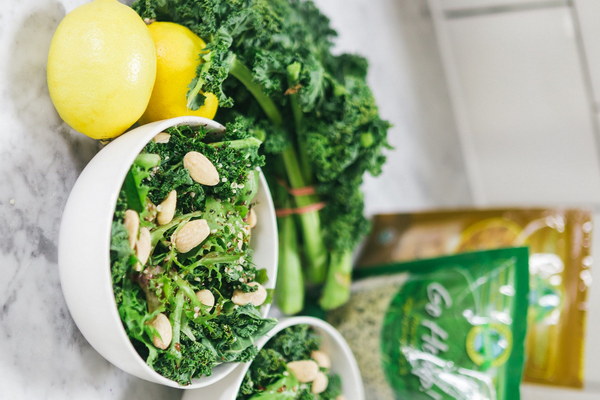Easing Heartburn Effective Tips for Nourishing Your Stomach When Experiencing Frequent Acid Reflux
Introduction:
Gastroesophageal reflux disease (GERD) is a common condition characterized by the backward flow of stomach acid into the esophagus, often resulting in a burning sensation known as heartburn. If you frequently experience acid reflux, it's crucial to adopt a healthy lifestyle and make certain dietary adjustments to alleviate symptoms and prevent further complications. In this article, we will explore effective tips for nourishing your stomach when dealing with frequent acid reflux.
1. Identify and Avoid Trigger Foods:
Identifying trigger foods is essential in managing acid reflux. Common culprits include spicy foods, citrus fruits, tomatoes, onions, fatty and fried foods, caffeine, alcohol, and chocolate. Keep a food diary to track your intake and determine which foods exacerbate your symptoms, then eliminate or reduce these items from your diet.
2. Eat Smaller Meals:
Overeating can increase the pressure on your stomach, leading to acid reflux. To minimize discomfort, aim to eat smaller, more frequent meals throughout the day. This approach allows your stomach to process food more efficiently, reducing the likelihood of acid reflux.
3. Eat Mindfully:
Pay attention to your eating habits. Avoid eating too quickly, as this can cause you to swallow air, which may lead to bloating and discomfort. Take the time to savor your meals, chew thoroughly, and listen to your body's hunger and fullness cues.
4. Maintain a Healthy Weight:
Being overweight or obese can exacerbate acid reflux symptoms. Strive to maintain a healthy weight through a balanced diet and regular exercise. Even a modest weight loss can significantly improve your symptoms.
5. Elevate Your Head During Sleep:
Lying down can increase the likelihood of acid reflux. To prevent acid from flowing back into your esophagus, elevate your head and upper body by 6 to 8 inches using pillows or a wedge pillow while sleeping.
6. Avoid Tight Clothing:
Tight-fitting clothing, particularly around the waist, can increase pressure on your stomach and exacerbate acid reflux. Opt for loose-fitting garments to reduce discomfort.
7. Manage Stress:
High levels of stress can worsen acid reflux symptoms. Practice stress-reduction techniques, such as deep breathing exercises, meditation, yoga, or engaging in hobbies that help you unwind.
8. Stay Hydrated:

Drinking plenty of water throughout the day can help keep your digestive system functioning properly and may alleviate acid reflux symptoms. However, avoid drinking large amounts of fluids with meals, as this can increase stomach pressure.
9. Consider Probiotics:
Probiotics are beneficial bacteria that can help maintain a healthy gut balance. Some studies suggest that probiotics may reduce acid reflux symptoms. Consult with your healthcare provider before starting any new supplement.
10. Seek Professional Advice:
If you continue to experience frequent acid reflux despite making lifestyle changes, it's essential to seek professional advice. Your healthcare provider can determine if your symptoms are due to GERD or another condition and recommend appropriate treatment options, such as medication or surgery.
Conclusion:
Frequent acid reflux can be a source of discomfort and distress. By implementing these tips for nourishing your stomach, you can effectively manage your symptoms and improve your overall quality of life. Remember, it's essential to consult with your healthcare provider to ensure you receive the appropriate care and treatment for your condition.









